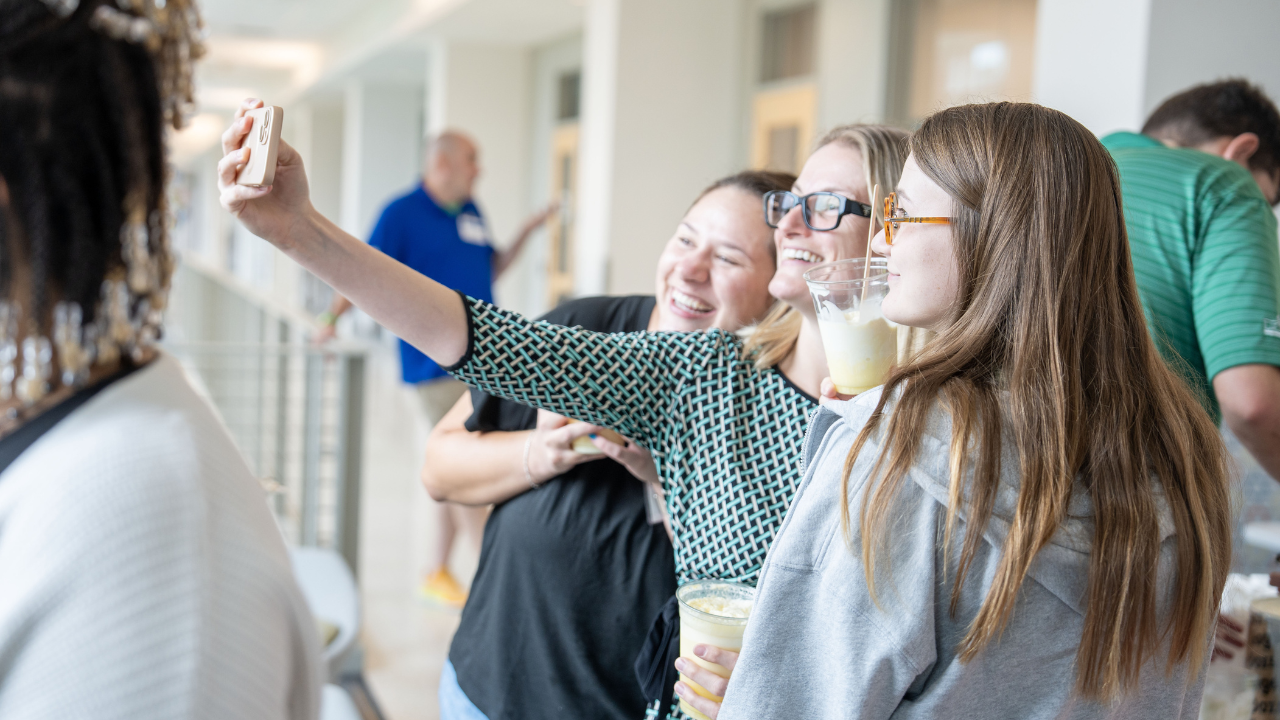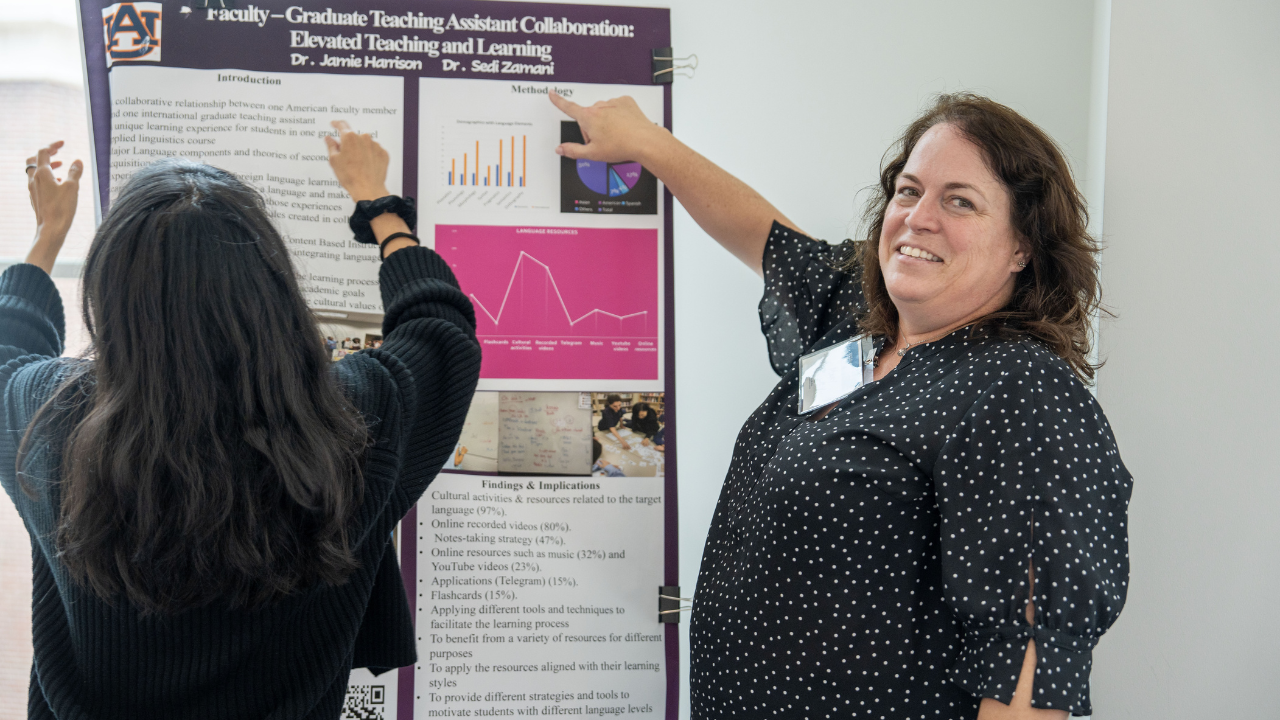content body

Faculty, staff, and graduate students gather on the steps of the Academic Classroom and Laboratory Complex during a peer teaching and learning event hosted at Auburn University.
At universities across the country, a growing number of faculty are pivoting their scholarly lens from the lab to the classroom and asking not only what students are learning, but how. At Auburn, that curiosity is fueling new efforts to strengthen STEM education through research, collaboration and innovation.
One example is the Sensor Summit, a weeklong field school hosted by the College of Sciences and Mathematics. Designed as a pilot program, it brings together faculty and graduate students from across campus to explore how research can inform and improve teaching practices — and to lay the foundation for broader education research initiatives at Auburn and beyond.
“There’s a lot of value in people coming from their own disciplines to engage in education research,” said Melinda Lanius, an assistant professor in the Department of Mathematics and Statistics. “They know the worldview, priorities and perspectives of their field.”
The summit is part of a national initiative known as PEER, or Professional Development for Emerging Education Researchers, which offers workshops to help faculty develop education research projects and move them toward publication or external funding.
At Auburn, the program is led in part by Lanius, whose work focuses on how students engage with mathematical concepts. She is part of a growing group of faculty involved in discipline-based education research, or DBER, a field that brings scholars grounded in their disciplines into the study of teaching and learning.
The field school welcomed participants from across Auburn’s colleges and departments and emphasized hands-on, collaborative learning. Over several days, attendees developed research questions, analyzed data sets and shared their findings in interactive sessions shaped by the group’s interests.
“It’s not about sitting and listening to lectures,” Lanius said. “It’s about doing the work, in community.”

Attendees enjoy refreshments and snap a selfie during a networking break at Auburn University's peer teaching and learning event.
Participants say they were drawn to the program for its collaborative atmosphere and the opportunity to make progress in a focused, supportive setting.
“This one-week intensive program offered a great opportunity to have a focused time block to delve deeper into education research,” said Erin Garcia, a lecturer in the Department of Industrial and Systems Engineering. “I was also attracted by the dedicated time to make progress on my current project plans in a supportive environment.”
While most attendees are from Auburn, organizers hope the Sensor Summit will grow to include faculty and graduate students from across the Southeast, including Mississippi, Florida and Georgia. As it expands, the program also aims to deepen connections across campus by introducing participants to research tools and resources they might not otherwise encounter.
During the field school, Karen McNeal, a DBER scholar in the Department of Geosciences, shared how she uses eye-tracking technology to study where learners focus their attention. Lanius, meanwhile, uses wearable fitness trackers in her research and often loans them to colleagues.
“So many of these tools are just sitting in offices,” Lanius said. “Bringing people together like this helps raise awareness and makes these resources accessible.”
Funded in part by a National Science Foundation grant (#2315747) supporting Lanius’ work, the Sensor Summit aligns with Auburn’s strategic plan to promote collaboration and innovation in teaching.
“Even if participants don’t pursue their own research projects afterward,” Lanius said, “they leave with a deeper understanding of effective teaching practices and how to assess them. That improves instruction and ultimately student outcomes.”
She also credited Katie Brown, a co-organizer for the event, with managing logistics and helping bring the program to life. Devin Hensley, a graduate student co-organizer for the event, provided invaluable assistance with registration and participant recruitment.
That collaborative spirit is one reason participants see lasting potential. Garcia believes the summit’s impact will extend beyond individual projects.
“Workshops like PEER are great opportunities for instructors to build their skills and expand their network in education research,” she said. “I learned about specific tools and methods, made progress on my own project and connected with colleagues at Auburn and beyond who are working on similar challenges.”
Experiences like Garcia’s reflect a larger goal. With its hands-on approach and cross-campus reach, the Sensor Summit is laying the groundwork for something bigger: a Southeastern network of educators and researchers working together to transform how STEM education is studied and strengthened across the region.





